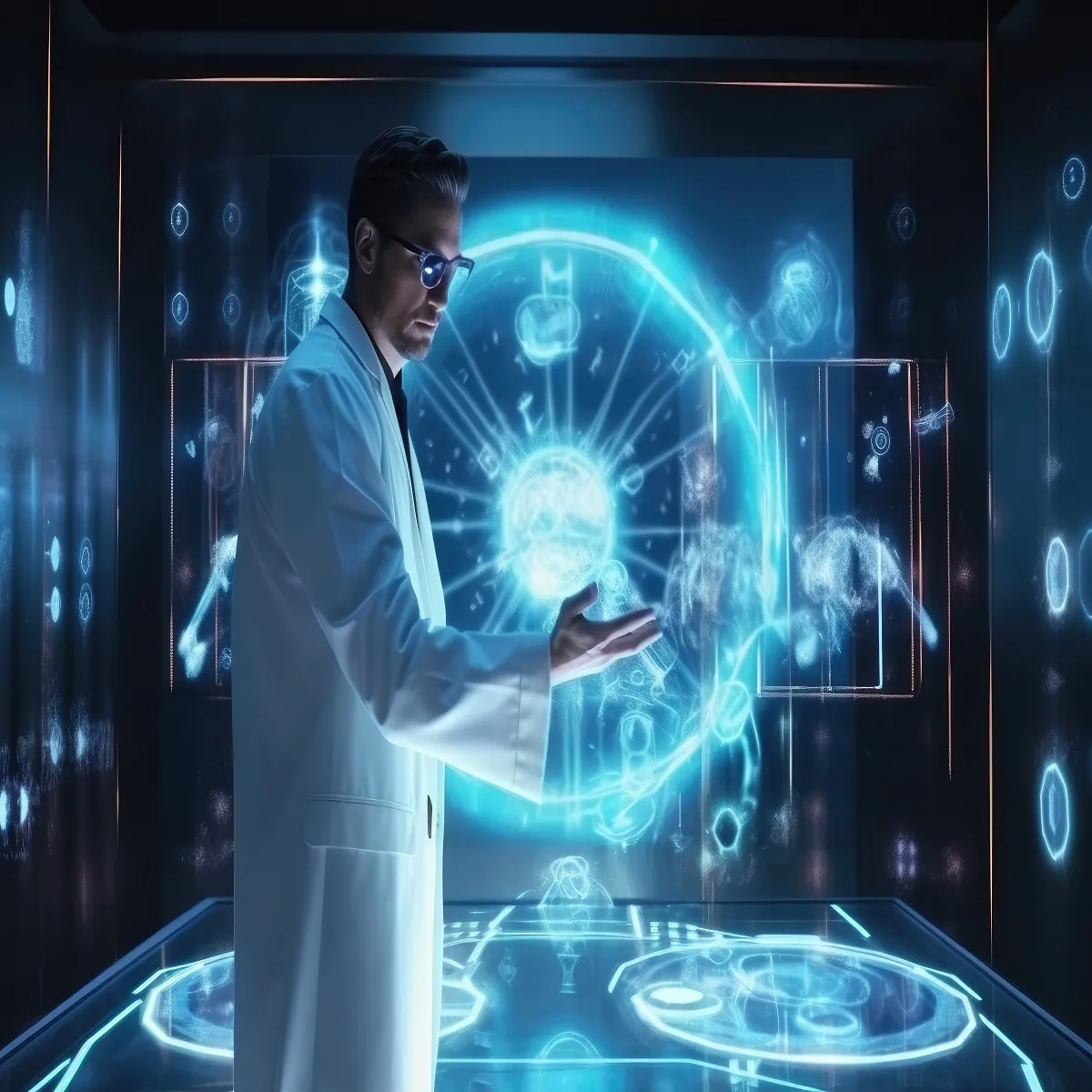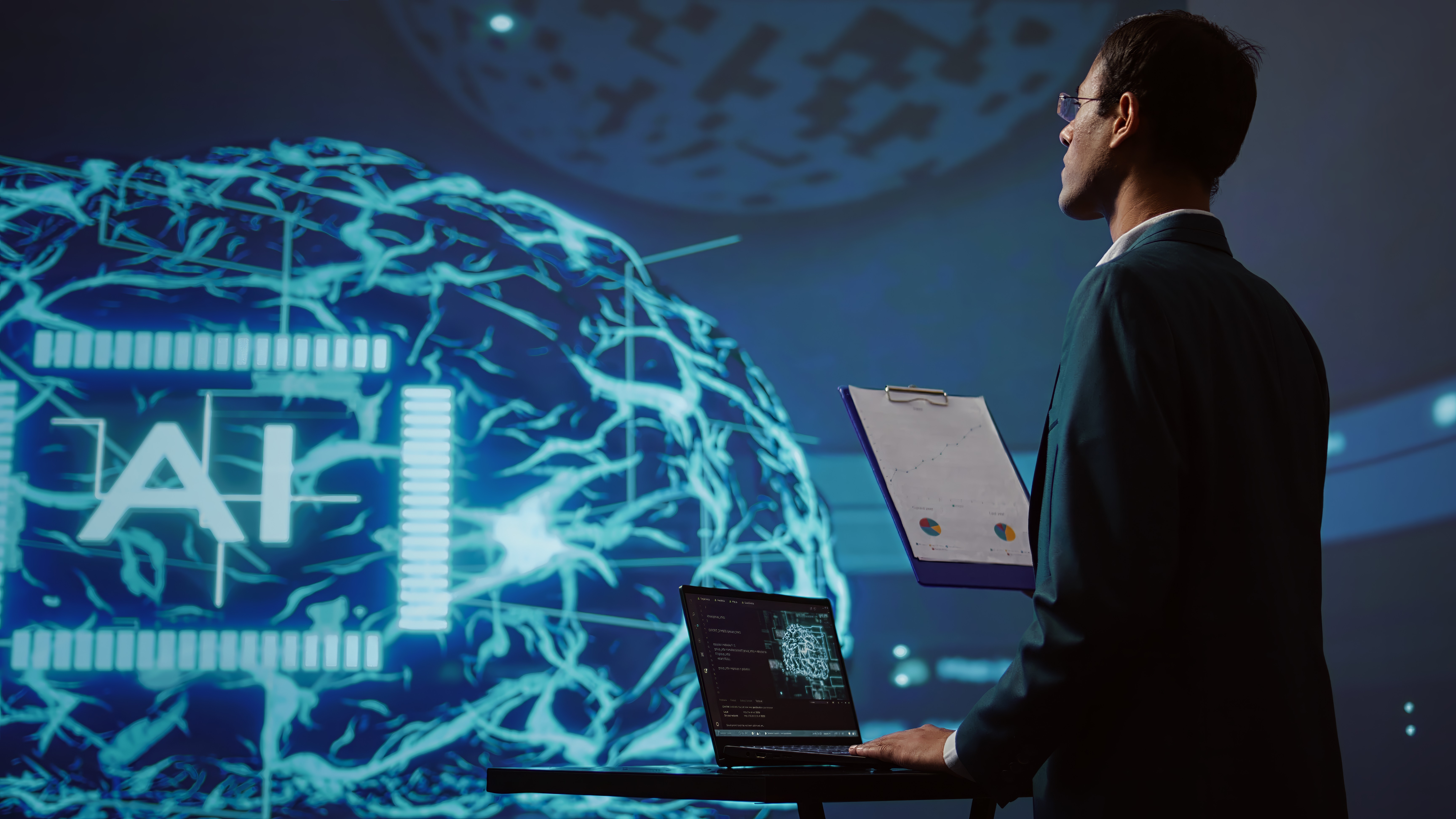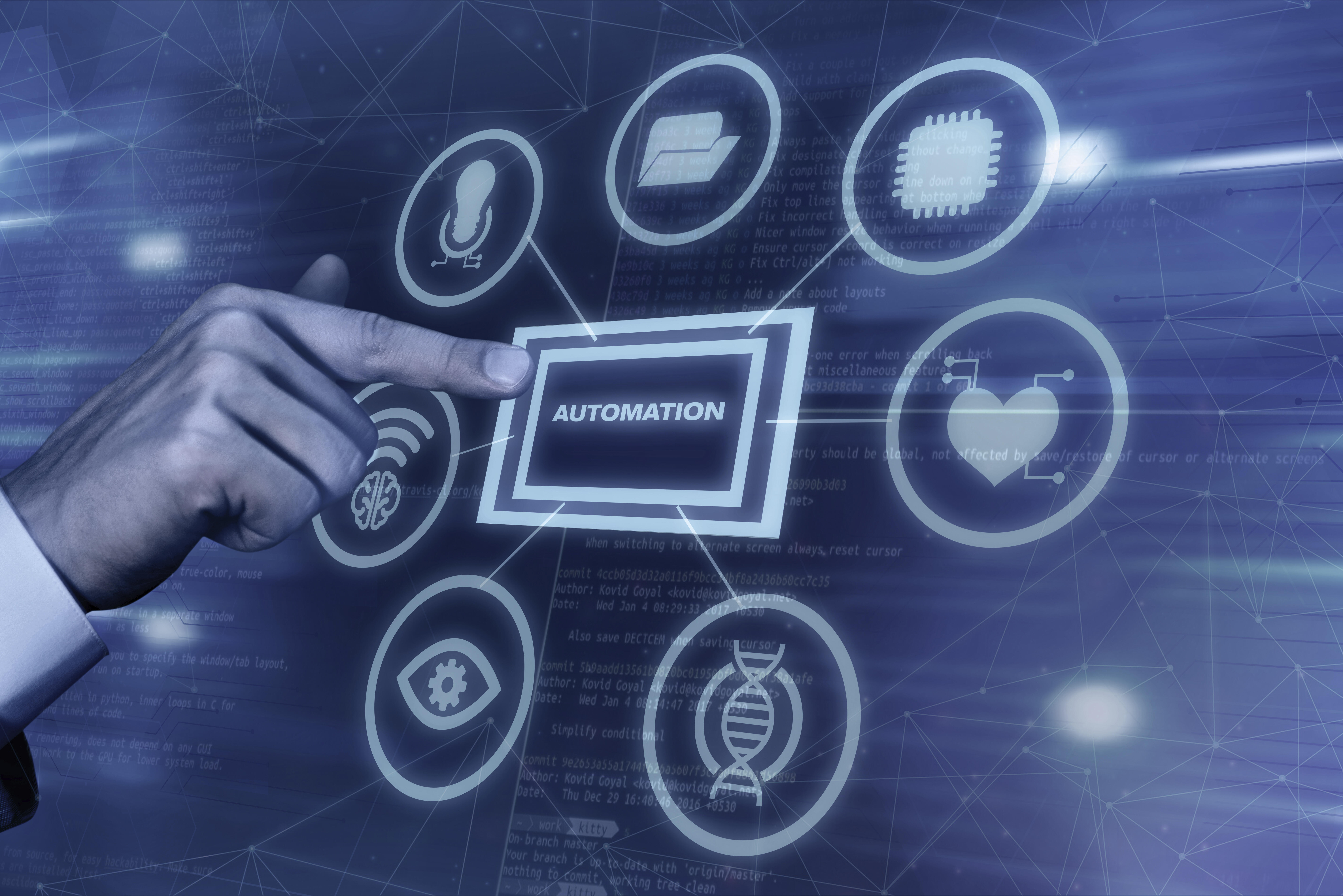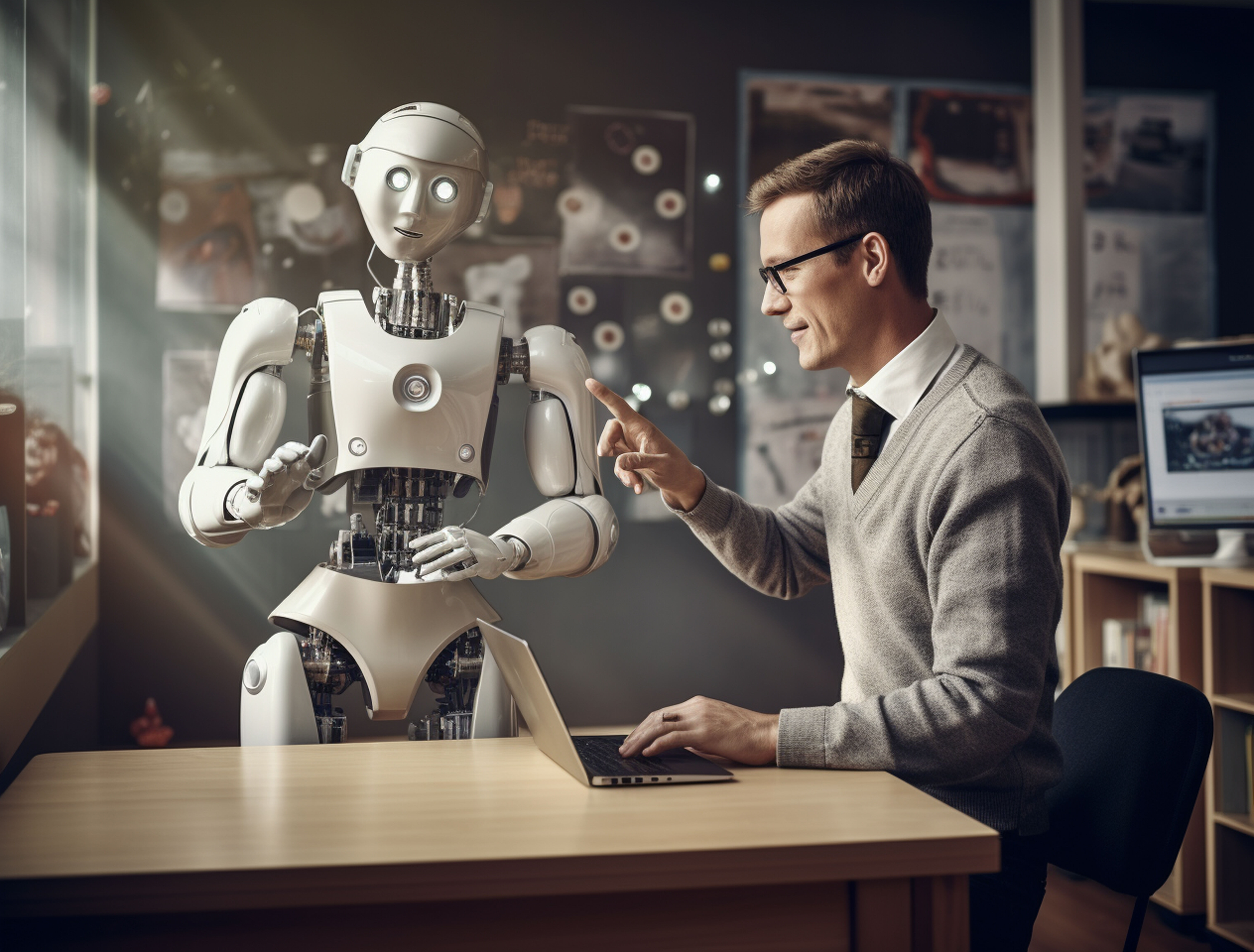How AI and Drug Discovery are Shaping the Future of Healthcare
What is Artificial Intelligence?
Artificial intelligence, or AI, is the ability of machines to mimic human intelligence. In simple terms, AI refers to computer systems that can perform tasks such as learning, reasoning, problem-solving, and decision-making. These systems use data, algorithms, and computing power to analyse information, identify patterns, and make predictions—often faster and more accurately than humans.
Traditional drug discovery is a long and complex journey. It typically begins with identifying a biological target, such as a protein involved in a disease. Researchers then screen thousands of chemical compounds to find ones that may interact with the target. This is followed by laboratory experiments, animal testing, and several phases of human clinical trials. The process can take over a decade and cost billions of dollars, with a high risk of failure at every stage. However, the integration of AI and drug discovery, is transforming this process, helping to streamline and expedite many of these stages, reducing both time and costs.
How is AI Transforming Drug Discovery?
When artificial intelligence is introduced into this process, it changes the game. AI can quickly analyse massive datasets from scientific literature, clinical trials, and chemical databases to identify promising drug candidates. It can predict how different molecules will behave in the body, helping researchers avoid harmful side effects early in development. AI also accelerates the design of new compounds and optimises clinical trial designs by selecting suitable patient groups.
By using advanced algorithms, AI reduces the time and cost of drug discovery while increasing accuracy and innovation. This means faster development of life-saving treatments and more personalised medicines. In short, AI and drug discovery is a powerful combination that is reshaping the future of healthcare and giving hope to patients worldwide.
Why Does Artificial Intelligence Drug Discovery Matters?
Challenges in Traditional Drug Discovery
Traditional drug discovery is notoriously slow, expensive, and uncertain. Developing a single new drug can take 10 to 15 years and cost over $2 billion. The process involves identifying a target, testing thousands of compounds, conducting laboratory experiments, and completing multiple phases of clinical trials. Despite the time and cost, the failure rate is extremely high—most drug candidates never make it to market due to safety issues or lack of effectiveness. These challenges make it difficult to respond quickly to urgent health crises.
AI as a Game-Changer in Drug Development
Artificial intelligence offers a breakthrough in overcoming these traditional barriers. AI systems can analyse vast amounts of biomedical data at lightning speed, identifying patterns and potential drug candidates that would take human researchers’ months or years to find. This leads to faster decision-making and more targeted research. AI also helps reduce costs by eliminating less promising compounds early in the process, reducing the need for expensive trials. Furthermore, it increases accuracy by predicting how drugs will interact with the body and flagging possible side effects in advance.
Real-World Impact: Fighting Emerging Diseases
The impact of AI in real-life situations is already evident. During the COVID-19 pandemic, AI was used to identify existing drugs that might be repurposed to treat the virus, helping scientists move faster in the early stages of the crisis. AI models also played a role in vaccine research by analysing viral structures and predicting effective vaccine targets. These achievements highlight how artificial intelligence drug discovery can shorten response times and improve preparedness for future health emergencies.
In a world where speed and precision are crucial, AI is helping to revolutionise medicine and save lives more efficiently than ever before.
How AI and Drug Discovery Work Together?
Data Collection and Preparation
The first stage in combining AI and drug discovery involves gathering vast amounts of biological and medical data. This includes genomic sequences, electronic health records, clinical trial data, and scientific literature. The data must be cleaned and organised to ensure accuracy and consistency. High-quality data is essential for training AI models to deliver meaningful insights.
Identifying Drug Targets
AI algorithms analyse the collected data to detect patterns and relationships that point to potential drug targets—such as proteins or genes linked to specific diseases. These insights help researchers understand the underlying mechanisms of a disease and identify where to intervene with medication.
Predicting Drug Behaviour
Next, AI is used to simulate how various chemical compounds might behave in the human body. It predicts absorption, distribution, metabolism, and toxicity (known as ADMET properties). This reduces the risk of selecting drugs that might later fail due to harmful side effects or poor performance.
Virtual Screening of Drug Candidates
AI performs virtual screenings of thousands or even millions of chemical structures to determine which ones are most likely to interact with the identified targets. This step helps narrow down a massive pool of compounds into a manageable shortlist for lab testing.
AI-Supported Clinical Trials
AI assists in designing and managing clinical trials by selecting ideal patient groups, monitoring results in real-time, and analysing outcomes more efficiently. This results in more effective and safer trials.
Continuous Learning and Improvement
Finally, as new data becomes available, AI systems continuously learn and refine their models. This ongoing improvement enhances future drug discovery efforts, making them faster and more accurate.
This integrated process shows how AI and drug discovery are reshaping the pharmaceutical landscape through speed, precision, and innovation.
What are the Real-World Examples of Artificial Intelligence Drug Discovery?
AI-Developed Drugs in Action
Several companies have successfully developed drug candidates using artificial intelligence. One notable example is Insilico Medicine, which used AI to design a drug for idiopathic pulmonary fibrosis—a rare lung disease. What’s remarkable is that the entire process, from identifying the target to selecting a preclinical candidate, took less than 18 months, a fraction of the typical timeline. Another pioneering company, Exscientia, developed an AI-designed drug for obsessive-compulsive disorder (OCD), which became the first such compound to enter human clinical trials.
Collaborations Driving Innovation
Pharmaceutical giants are increasingly partnering with AI start-ups to speed up discovery and reduce costs. For instance, Pfizer has worked with companies like IBM Watson to analyse patient data and predict drug responses. Meanwhile, GlaxoSmithKline teamed up with Cloud Pharmaceuticals to use AI in designing novel compounds. These collaborations bring together deep medical expertise and cutting-edge technology, helping to unlock new possibilities in drug development.
Success Stories and Ongoing Trials
Many AI-discovered drugs are now progressing through clinical trials. For example, BenevolentAI collaborated with AstraZeneca to identify potential treatments for chronic kidney disease and idiopathic pulmonary fibrosis. Other companies, such as Atomwise, have used AI to screen billions of compounds and have ongoing projects targeting diseases like Ebola and multiple sclerosis. These efforts highlight the growing impact of technology on real-world healthcare outcomes.
Through faster timelines, reduced costs, and more targeted discoveries, artificial intelligence drug discovery is proving to be more than just a theoretical concept. It is an active, evolving force that is transforming how we approach medicine—one breakthrough at a time.
What are the Tools and Technologies Behind AI and Drug Discovery?
Machine Learning and Deep Learning
At the core of AI-driven drug development are machine learning (ML) and deep learning (DL). These technologies allow computers to learn from vast datasets without being explicitly programmed. ML models identify patterns and predict outcomes, while DL models—such as neural networks—can handle highly complex tasks like image recognition and molecular structure analysis. These tools help scientists quickly find potential drug candidates, optimise compounds, and predict success rates in early stages.
Natural Language Processing in Medical Research
Natural Language Processing (NLP) enables AI systems to read and understand unstructured text from scientific literature, clinical notes, and research papers. By scanning millions of documents, NLP helps researchers stay updated on new findings, extract relevant insights, and identify potential drug targets. This is especially valuable in medical fields where information is constantly growing and evolving.
Predictive Analytics and Molecular Simulations
Predictive analytics is used to forecast how a drug will perform based on past data. AI models predict toxicity, side effects, and drug efficacy, helping to eliminate weak candidates early in the pipeline. Meanwhile, molecular simulations allow researchers to virtually test how drug molecules interact with biological targets, significantly reducing the need for expensive lab experiments.
Popular Platforms Powering Innovation
Several cutting-edge platforms are driving progress in this space. IBM Watson for Drug Discovery combines machine learning and NLP to identify hidden connections in biomedical data. DeepMind’s AlphaFold made headlines by solving protein folding—one of biology’s biggest challenges—enabling researchers to understand diseases better and design more precise treatments.
Together, these tools and technologies make ai and drug discovery a powerful combination, accelerating the path from research to real-world medicine and transforming how we treat disease
What are the Benefits of Artificial Intelligence Drug Discovery?
Faster Drug Development Timelines
One of the biggest advantages of using AI in drug discovery is the significant reduction in development time. Traditional drug discovery can take over a decade, but AI can streamline many of the early stages—such as target identification, compound screening, and data analysis—into a much shorter timeframe. By automating tasks and accelerating decision-making, AI helps bring new treatments to market faster, which is especially critical during health emergencies like pandemics.
Lower Research and Development Costs
Drug discovery is known for being both expensive and risky. AI helps reduce costs by narrowing down the most promising drug candidates early in the process, minimising wasted time and resources on less effective compounds. Virtual screening and predictive models also eliminate the need for many costly laboratory tests and failed experiments, making the entire research pipeline more cost-effective.
Improved Targeting and Personalized Medicine
AI enables the development of more targeted therapies by analysing individual genetic profiles and large-scale patient data. This allows researchers to create personalised treatment plans that are tailored to specific patients or groups, increasing the chances of success. Better targeting also leads to fewer side effects and higher treatment effectiveness.
Reduced Risk of Failure in Clinical Trials
Many drugs fail in late-stage clinical trials due to unforeseen toxicity or inefficacy. AI models can predict these issues early on by analysing chemical and biological data. This early detection reduces the risk of investing in drugs that are unlikely to succeed, saving time, money, and effort.
Ultimately, artificial intelligence drug discovery offers a smarter, faster, and more precise approach to developing new medicines, promising a future where treatments are not only quicker to produce but also safer and more effective for patients worldwide.
What are the Challenges and Ethical Considerations in AI Drug Discovery?
Data Privacy and Access to Medical Data
AI relies on vast datasets, including patient records and clinical trial data, to identify drug candidates and predict treatment outcomes. However, accessing and using this data raises concerns about patient confidentiality and consent. Striking the right balance between data availability and privacy is crucial, and regulations like GDPR help address these concerns, though further safeguards are needed.
Transparency and Explain ability of AI Models
AI systems, especially deep learning models, are often considered "black boxes" because they can make decisions without being easily understood by humans. In drug discovery, this lack of transparency can be problematic, as researchers and regulators need to understand how AI arrives at its conclusions. Ensuring the explain ability of AI models is important for building trust, particularly in fields like medicine where human lives are at stake. More research into interpretability tools and algorithms is needed to make AI decisions clearer.
Regulatory Approval and Human Oversight
Regulatory bodies like the FDA must ensure that AI-generated drug candidates meet the same rigorous standards as traditionally developed drugs. The approval process for AI-driven drugs can be more complicated due to the innovative nature of the technology. Furthermore, human oversight remains essential to ensure that AI tools complement, rather than replace, human judgment, particularly in critical stages of drug development and testing.
Risks of Bias in Algorithms
AI systems are only as good as the data they are trained on. If the training data contains biases—whether related to age, gender, ethnicity, or other factors—these biases can be perpetuated in the AI models. In drug discovery, this could lead to ineffective or unsafe treatments for certain populations. It is essential to address and mitigate bias to ensure that AI-generated drugs are effective and safe for all patients.
As AI continues to reshape drug discovery, addressing these challenges and ethical considerations will be key to ensuring its responsible and effective use in healthcare.
What is the Future of AI and Drug Discovery in Healthcare?
Shaping Precision Medicine with AI
AI is transforming the field of precision medicine by enabling more tailored and individualized treatments. By analysing genetic data, environmental factors, and personal health records, AI can identify unique biomarkers that help predict which treatments will be most effective for a specific patient. This personalised approach not only improves outcomes but also reduces adverse effects by ensuring that the right drug is prescribed to the right patient at the right time. As AI continues to evolve, it will play a central role in developing highly targeted therapies that cater to each patient’s unique biology.
AI’s Potential in Rare Diseases and Global Health
AI holds tremendous potential in tackling rare diseases and global health challenges. Many rare diseases are poorly understood due to the limited amount of data available, making traditional drug discovery methods difficult. However, AI can analyse even small datasets to identify new drug targets, predict drug efficacy, and accelerate the development of treatments. Similarly, in global health, AI can assist in the rapid discovery of drugs for emerging infectious diseases or conditions that disproportionately affect low-resource populations. With its ability to process vast amounts of data, AI can help bridge the gap in healthcare access and improve health outcomes on a global scale.
Human-AI Collaboration in Next-Generation Drug Development
While AI is revolutionizing drug discovery, the future lies in collaboration between human expertise and AI capabilities. AI can handle complex data analysis and simulations, but human judgment is essential in interpreting results and making decisions about drug development. In next-generation drug discovery, scientists will work alongside AI tools to combine creativity, intuition, and deep knowledge with the speed, accuracy, and data-processing power of AI. This synergy will lead to more innovative, efficient, and safer drugs in the future.
As AI continues to advance, its role in AI and drug discovery will only grow, shaping the future of healthcare with more precise, faster, and globally accessible treatments.
How to Get Started Learning More About AI and Drug Discovery?
Recommended Courses from LAI
If you're interested in diving into AI and drug discovery, starting with the right educational resources is essential. LAI offers a variety of courses that cater to beginners and those looking to expand their knowledge in this field. Courses like "Introduction to AI in Healthcare" and "Data Science for Drug Discovery" provide a strong foundation in the intersection of AI, biology, and medicine. These courses offer hands-on experience with machine learning, AI algorithms, and data analytics, equipping you with the skills needed to work in the rapidly evolving field of drug discovery.
Key Skills to Learn: AI Fundamentals, Data Science, and Biology Basics
To effectively engage with AI in drug discovery, there are a few key skills you’ll need to master:
- AI Fundamentals: Learn the core concepts of artificial intelligence, including machine learning, deep learning, and neural networks. This knowledge is crucial for understanding how AI systems analyse biological data and make predictions.
- Data Science: Data is at the heart of AI drug discovery. Understanding data collection, analysis, and visualization techniques will help you work with large biological datasets and apply AI tools effectively.
- Biology Basics: A fundamental understanding of biology, particularly genetics, pharmacology, and biochemistry, will help you comprehend the science behind drug discovery and the biological targets AI is working to identify and influence.
Resources for Further Reading and Exploration
Beyond courses, there are several great resources to help deepen your knowledge. Websites like PubMed and Google Scholar provide access to cutting-edge research papers on AI and drug discovery. Books such as "Artificial Intelligence in Healthcare" and "Deep Learning for the Life Sciences" offer in-depth insights into the application of AI in medical research and drug development. Additionally, online communities like AI-focused forums and LinkedIn groups can connect you with experts and fellow learners in the field.
By exploring these resources, you’ll be well on your way to gaining the knowledge and skills necessary to understand and contribute to the future of AI-driven drug discovery.
Conclusion
AI is revolutionizing AI and drug discovery, making the process faster, more cost-effective, and increasingly personalized. From precision medicine to accelerating treatments for rare diseases, AI is shaping the future of healthcare. As artificial intelligence drug discovery continues to evolve, its ability to predict, analyse, and streamline drug development opens up new possibilities for more targeted and effective therapies. The potential for AI to transform the medical field is vast, offering hope for better treatments and improved global health outcomes. We encourage you to dive deeper into this exciting field, explore relevant resources, and become part of the next wave of innovation in healthcare.








